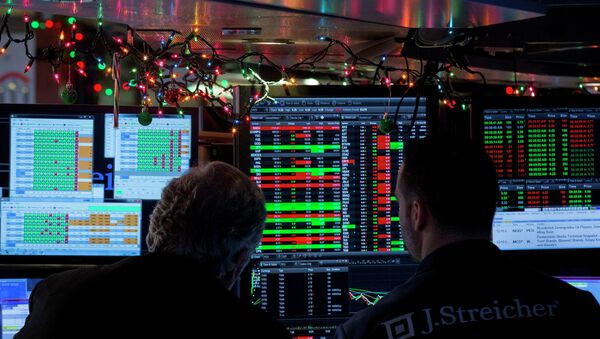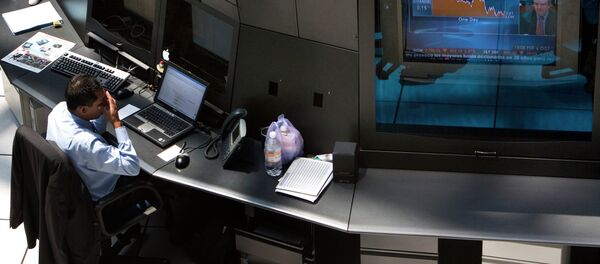Kristian Rouz – Even as the Grexit question lingers, European markets have surged on the ECB's own QE, a poor indicator of growth even though their economy remains shaky on the periphery.
Global markets posted losses on Monday and early Tuesday, save for only a few bright spots in Europe and Asia.
Additionally, fears festered onmajor turbulence in the Communist nation’s energy sector, as Beijing has announced its intent to shutdown most of its major coal power plants, citing environmental concerns.
In early-to-midday Tuesday trades, Asian stocks were mostly flat. High volatility marked trading sessions in Asia-Pacific, triggering a possible retreat in European markets. In mainland China, the preliminary (flash) reading of the PMI benchmark showed a sharp decline in the nation’s manufacturing and services in March, as the measure stands at 49.2 (readings below 50.0 indicate contraction). This is far below the previously forecasted reading of 50.6. February’s effective PMI in China stood at 50.7.
The CSI 300 Index shed 0.8% as foreign investors were frantically leaving the mainland’s market due to the disappointing PMI reading. Real estate and energy sectors posted the greatest losses, led by PetroChina and Poly Real Estate.
As such, the Shanghai Composite Index was up slightly at the close on hopes ofmonetary easing.
In Japan, Nikkei 225 shed 0.2% due to a weaker dollar and a stronger yen. The index slipped just below its recently reached 15-year high.
In Hong Kong, most shares declined as well, with metals among the top losers due to a weaker demand on the mainland. The Hang Seng Index slid 1.3%.
On Tuesday, Germany and France will post their preliminary PMI readings for March.
Crude oil is on the losing streak as news of record volumes of production posted by Saudi Arabia, now at almost 10 mln bpd (in comparison to 9.4 mln bpd extracted by the US).
Brent crude futures were at $55.50/bbl, US WTI oil was at $46.88/bbl.
Oil refineries, however, are cheering across the globe and in the US, in particular as storage fees are sky-high amidst the oversupply of oil and the still-intact US Federal ban on exporting unprocessed oil.




